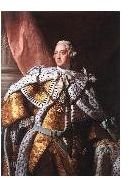An Analysis of Important Quotes from Antigone
Quote: “Now you can prove what you are: / A true sister, or a traitor to your family.” (Prologue, 26-27).
Analysis: Antigone calls out her sister, informing her that she’s either for her or against her.
Quote: “When the laws are kept, how proudly his city stands! / When the laws are broken, what of his city then? / Never may the anarchic man find rest at my hearth, / Never be it said that my thoughts are his thoughts.” (Ode 1, lines 21-24).
Analysis: The chorus fulfills one of its roles by declaring an important Thebean value, in this example, obedience to the law. This statement can be interpreted in two ways: (1) the chorus agrees with Creon and calls for the death of the individual who buried Polyneices; (2) the chorus condemns Creon for his anarchic treatment of the gods’ laws.
Quote: “I have seen / A mother bird come back to her stripped nest, heard / her crying bitterly a broken note or two / For the young ones stolen. Just so, when this girl / Found the bare corpse, and all her love’s work wasted, / She wept, and cried on heaven to damn the hands that had done this thing.” (Scene 2, lines 35-41).
Analysis: The sentry uses a simile to describe Antigone’s anguish upon finding her work undone. If Antigone has already put a layer of dirt over the dead body and performed the burial rights, then why does she need to come back? Would the unburying of the body nullify her work? Does she have another reason for returning like wishing to be caught? Who is qualified and authorized to perform these burial rights? Can any random person do it?
Quote: “She has much to learn. / The inflexible heart breaks first, the toughest iron / Cracks first, and the wildest horses bend their necks and pull at the smallest curb.” (Scene 2, lines 76-79).
Analysis: Creon employs several metaphors for describing the fate of those who refuse to change their mind. He unknowingly condemns himself, for it is he who has the inflexible heart and has much to learn. This is irony.
Quote: “Fortunate is the man who has never tasted God’s vengeance! / Where once the anger of heaven has struck, that house is shaken.” (Ode 2, lines 1-2).
Analysis: The chorus states a Thebean axiom regarding fate. On the surface, the chorus pities Antigone, the daughter/sister of Oedipus whose family is cursed by the gods. It also can be applied to Creon who is soon to be cursed by the gods for his unjust law.
**
Quote: “Do not believe that you alone can be right. / The man who thinks that, / The man who maintains that only he has the power / To reason correctly, the gift to speak, the soul– / A man like that, when you know him, turns out empty. / It is not reason never to yield to reason.” (75-79).
Analysis: Haemon attempts to save his fianceé and his father with wise counsel. Creon never responds to the argument, choosing instead to attack the speaker. Ignoring Haemon’s advice has brought the downfall of rulers and common folk since the beginning of time.
Quote: Antigone: O Oedipus, father and brother! / Your marriage strikes me from the grave to murder mine / I have been a stranger here in my own land / All my life / The blasphemy of my birth has followed me.
Chorus: Your death is the doing of your own conscious hand.
Analysis: Antigone brings up that whole Oedipus killing his father and marrying his mother incident. She claims it’s Oedipus wrong doing and subsequent curse that forbids her happiness. The chorus calls her out and reminds her that it is her choices that have caused her downfall. The debate concerning free will and fate has raged for centuries.
Quote: Creon: This generation of prophets have always loved gold
Teiresias: This generation of kings has always loved brass.
Analysis: There’s nothing more destructive to a kingdom than when the king gets in an argument with the town seer. Nothing good can come of this. Nothing does. Creon accuses Teiresias of taking bribes. Teiresias responds by accusing Creon of placing value on things with apparent beauty but no real value.
Quote: “Not many days, / And your house will be full of men and women weeping, / And curses will be hurled at you from far / Cities grieving for sons unburied, left to rot / Before the walls of Thebes.” (Scene 5, 79-83).
Analysis: Teiresias uses the “your house will be full of men and women weeping” card and wins the argument. It is this threat that finally causes Creon to repent. He repents too late and Teiresias’ prophecy is fulfilled.
Quote: “I cannot say / Of any condition of human life “This is fixed. / This is clearly good or bad.” Fate raises up, / And fate casts down the happy and unhappy alike: / No man can foretell his fate.” (Exodus, lines 3-7).
Analysis: Chances are when the messenger begins his message in this fashion, bad news will follow. And it does. Fate plays an important role in Greek tragedy.
Quote: “There is no happiness where there is no wisdom; / No wisdom but in submission to the gods. / Big words are always punished, / And proud men in old age learn to be wise.” (Exodus, lines 139-142).
Analysis: That pretty much sums up the play’s theme. Too bad it took Creon so long to figure it out.
Sophocles. “Antigone.” Glencoe Literature, Course 5. New York: Glencoe, 2002. 729-68.
This post is part of the series: Antigone Study Guide
Rebel against an unjust test by using this Antigone Study Guide.
